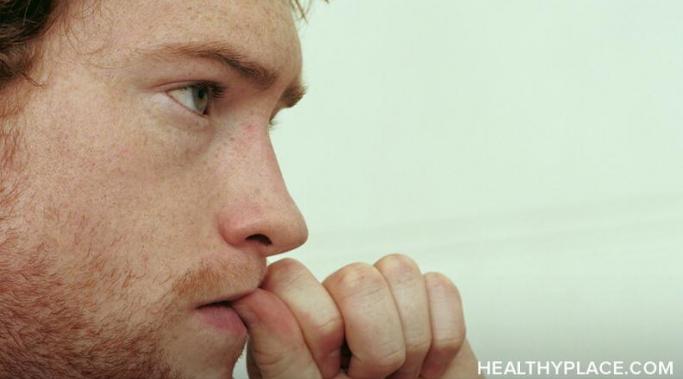For those who struggle with self-harm, emotions are often intense. When you’re in a positive, safe place, you tend to feel as if you will always have the strength to push past those daily stressors. When worried or anxious, your body goes into hyperactive mode, thinking that a small cut or burn may turn off the paranoia. For those who self-harm, anger can be one of the most frightening feelings of all because when you feel this emotion, it is hard to stop yourself from harming your body.
It can be difficult controlling unsteady emotions, especially for those with mental illness. Emotions play a huge role in overcoming the need to self-harm. Once you find ways to effectively control your emotions, you may find it easier to control the urges to cut or burn or pick.
Speaking Out About Self Injury
A group of us at work recently held an event focusing on ways to help de-stress the frazzled minds of mothers. Even though I may not yet be a parent, I know that parents carry a lot of anxiety on their shoulders. They must be happy and confident for their children while also focusing on their own needs.
Sometimes, we too act a certain way to look happy on the outside when we are really struggling on the inside.
When I was working at a residence for youth with mental illness, every day was a struggle. Not only were the youth struggling to stop their negative behaviors, but I, too, was learning to push away my past and work on helping the future of others by using past experience.
We would often focus on coping skills that were necessary to move past these urges. Yes, I know I talk about coping skills like a broken record, but once you know the positive ways to redirect yourself, it becomes a little easier to sway away from the sharp objects around you. We always hear about the common coping skills: listening to music, going for a walk or writing in a journal.
However, one coping skill that has always stuck out in my mind is self-talk.
When you feel the need to self-injure, it takes a lot of self-control to push away the emotions and temptations connected to those urges. When you’re angry or upset and you turn to cutting or burning, your mind focuses on that mark and it is difficult to see anything else clearly.
Sometimes, all you need to prevent self-harm urges is a few minutes with a pet.
I’ve been having the most frightening nightmares recently. These dreams could be due to my recent obsession with the new television show, Salem. However, some of these nightmares have been bringing me back to my years of cutting.
One thing is for sure: nightmares filled with negative flashbacks are not good for the struggling and recovering self-harmer.
I’ve always been cursed with really painful headaches and occasional dizziness. Typically, I try to push through the pain. However, recently I experienced the worst dizzy spell of my life, which sent me to the doctors. My whole body felt disoriented and my eyes were constantly in and out of focus. I felt nauseous and everything around me would not stop spinning, even when I closed my eyes.
This dreadful feeling reminded me of how our minds feel when we are trying to tell ourselves not to self-harm – our thoughts keep on spinning and twisting and all it leads to is pain.
Not only did I forget to recognize The Semicolon Project on April 16, I also didn’t submit a blog on the day I was supposed to. I praise myself for being timely and recognizing days that I see as important. I typically am very organized and sometimes I become obsessed with routine. However, when I am a little off with my schedule, I tend to be filled with regret and frustration.
You can’t regret something you did or should have done – we are humans and it happens. Don't let regret lead to self-harm.
Sometimes the signs we find that tell us to stop self-harming are tragic. Many people see the death of a loved one or a disease stricken friend as a symbol to move forward and away from your own demons. I am at fault because the death of my brother was what made me stop my self-injurious behaviors.
His struggle was what made me realize that my cutting was not worth the physical pain he had been tortured with. He had been one of the few people I had discussed my self-harm with and knowing he had been through so much pain, not caused by himself, made me almost feel selfish.
Yes, my brother’s death was the tragic sign I needed to stop cutting. But now, looking around, I see so many other symbols that could have helped me stop.
Self-Harm, Scars and Some Stars
It’s been a while since I read a life-changing book. I mean, a book that keeps your mind going throughout the day and your emotions on edge. I read The Fault in Our Stars , by John Green, in less than two days and even though I’m a writer, I’m not a quick reader.
The book is about two teenagers with cancer who meet at a cancer support group and, you guessed it, begin talking. It may sound cliché, but the story is one that must be read. Even though I am a cancer survivor, you don’t have to have the disease to be able to relate to the idea of pain.
It may be different than self-injury pain, but it is pain all the same.
After months without a job, I have finally begun a new one that I am extremely excited about. I am working as a Family Worker helping families and children overcome their struggles with poverty and difficult home lives. This really is a dream job in my eyes.
Over the last few months, I had fallen into a deep depression. This depression was something I hadn’t felt since the days I struggled with cutting. Luckily, I didn’t turn to self-harm as a coping skill, but like all recovering self-harmers, the urge was there on a daily basis.









